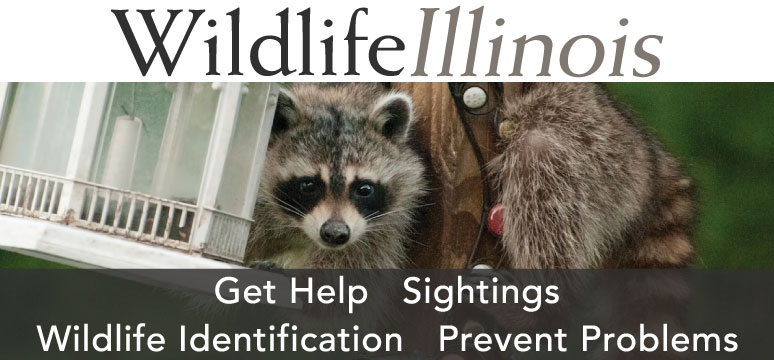
Photo by Terry Musser, Wild Rural Park Hunting and Fishing Club youth wingshoot and pheasant hunt.


Photo by Terry Musser, Wild Rural Park Hunting and Fishing Club youth wingshoot and pheasant hunt.
Why get up before dark and head out to a cold, snowy field? Why sit in a tree stand layered in oversized clothes, or schlep through mud and ice on your day off school? These are good questions for youth on their first youth hunt. The initial answers may range from a hesitant “My dad signed me up to do this” to “I wanted to try hunting.” By the end of the day of their first hunt, most participants have a definitive answer: because hunting is fun! Many are eager to do it again.
Youngsters have opportunities to try hunting thanks to mentored youth hunting programs throughout the state. The Illinois Department of Natural Resources (IDNR) and various conservation organizations offer guided hunting experiences for youth. In these programs, young people can learn to hunt turkey, waterfowl, dove, deer and upland game.

The IDNR and conservation organizations recognize that the future of hunting lies in the youth of today. Youth hunting programs are designed to build a foundation of responsible, ethical hunting for a new generation of hunters.
For people fortunate enough to grow up in a hunting family with access to great habitat, the concept of mentored youth hunts may not seem like a big deal. Dad takes the youngsters out to the deer stand when he thinks they’re old enough, just like Grandpa did for him, and his great-uncle did before that. There is an increasing number of people who do not grow up with relatives who hunt, however, and many people do not live near huntable fields and woodlands. For these kids (and grown-ups!) mentored hunts are invaluable. It’s a way to try something you think you might like but aren’t quite sure. For some youth, it may be the door that opens to a lifetime connection with nature.
I talked to some young hunters at a recent controlled pheasant youth hunt, all of whom were beaming with smiles at the end of the day. What was the biggest take-away? Was the hunt what they expected? Were there any surprises? Do they want to go hunting again?
One girl told me that her big take-away was how to safely handle a firearm in the field and know when to shoot (an answer that both surprised and pleased me!). Expectations of the participants varied, with some youth expecting a more wilderness-type experience. As for surprises, “My biggest surprise was that I hit the bird!” replied one hunter with a big grin.

Jen Tyler, Director of Gardner Camp, a private conservation organization, relayed a similar scenario that took place on a youth hunt at her site. She recalled hearing a young girl on a deer hunt exclaim, “I got it, Dad! I really did it!” It was a clean shot, an ethical harvest, and a perfect beginning to a lifetime of hunting. “Now,” said Tyler, “this young lady inspires other young girls to hunt and get out of their comfort zone in the outdoors.”
Plans to hunt again in the future? The answer was unanimous among the students I spoke with—absolutely!
One important aspect of mentored youth hunts is providing a positive first experience in the field—with emphasis on positive. After all, we do this because it’s fun! Sometimes dads and grandpas are good teachers, but sometimes the first hunt is better with a mentor who is not family. (Think back to your experience learning to drive.) Adult mentors who are trained in teaching youth help build confidence in a positive environment, while ensuring safe and ethical behavior in the field.

An important part of mentored youth hunts is demonstrating that a hunt can be fun even if you don’t bag a bird or harvest a buck. It’s all part of the ethics of hunting, and the experience of learning from nature. One young hunter said the most fun was meeting other kids during the hunt – not the harvest. Another liked being with the dogs in the field. A bird in the vest is nice, but ultimately the experience is more than that.
A life of environmental stewardship doesn’t come out of the blue. It begins with experiencing the conservation ethic at a young age and learning from mentors. Youth hunts in Illinois are foundational in building the new generation of hunters and ensuring the work of conservation in the future.
Information about the upcoming 2023 spring youth turkey hunts can be found at https://www2.illinois.gov/dnr/hunting/pages/spring-turkey-program.aspx.
For information on next fall’s youth hunts, check the IDNR website. Select controlled pheasant, waterfowl hunts and deer hunts.
Also look at the youth hunt information available through the Illinois Recreational Access Program.
Additional information on wingshooting clinics and other youth hunts will be posted on the IDNR website.
Valerie Blaine has worked as a naturalist for more than 40 years, from the prairies and woodlands of Illinois to the shores of the San Francisco Bay. She earned a master’s degree in forestry and a bachelor’s degree in botany from the University of Illinois. Blaine retired as the Nature Programs Manager for the Forest Preserve District of Kane County.
Valerie Blaine has worked as a naturalist for more than 40 years, from the prairies and woodlands of Illinois to the shores of the San Francisco Bay. She earned a master’s degree in forestry and a bachelor’s degree in botany from the University of Illinois. Blaine retired as the Nature Programs Manager for the Forest Preserve District of Kane County.
Submit a question for the author